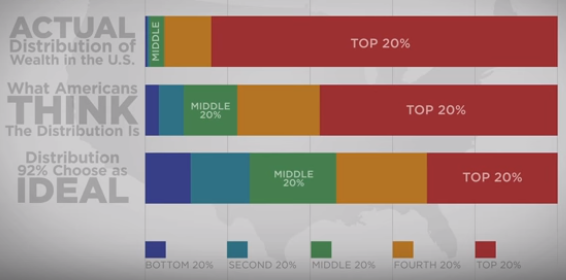While we may or may not realize it, greed is inside all of us and is an apparent trait of those with wealth or power. We can see it in those around us, in the government, and people in influential positions .
In our world’s history, European nations such as Britain and Portugal took advantage of African and American lands, exploiting them for personal matters and economic gain. The areas colonized most of the time did not benefit from the trade associated with their region, and instead lost access to the things they used daily and for their own economic export. Today, the upper classes and large corporations in the United States are doing similar things, taking advantage of labourers in other regions rather than their own. A popular trend for business is to hire workers in countries where the legal requirements for working hours and pay are much more relaxed, in the end costing the company far less compared to the cost in the US.
Why are major corporations and the nation’s wealthiest citizens being so stingy with their money? What difference does it make to one’s way of life if they have 15 million in their bank account compared to 14 million? Even though the wealthiest have large amounts of money in their accounts and safes, they aren’t willing to pay higher taxes or spend it to better the community. What good is money when it just sits in your account, waiting to be used?
According to the International Revenue Service, 68% of the nation’s taxes were paid by the top 10%, but this group also earned 45% of the nation’s overall income. On the other hand, the bottom 50% paid 3% of the nation’s taxes and earned only 12% of the nation’s income. The fact that almost half of the money given to Americans from their jobs is going to the top 3 million in our country of 319.8 million people is absurd. In President Obama’s state of the union address in 2014, he pointed out that this gap between the top 10% and the bottom 90% was way too large, and needed to be fixed.
In a video titled “Wealth Inequality in America,” the statistics are shown for what the top 10% makes out of all of America’s wealth. In the video, it’s pointed out that “the CEO makes 380 times the average worker’s pay.” The average American worker isn’t making nearly as much as their boss, and they’re probably working even harder. When was it decided that the top 1% needed this much money?
Many argue that this is just how a healthy economic system works, and without it, we wouldn’t have jobs and would all be struggling together and that there is no such thing as a perfect wealth balance. While that may be somewhat true, there is a point where the nation’s wealth and the people in control of it need to take a step back and think about what good having billions of dollars is. When the top 1%’s wealth is greater than that of the lower 60%’s, the system is skewed.
Although it may seem like it, not all of the nation’s richest are money-hungry without a cause. People like Bill Gates, Mark Zuckerberg, and Michael Dell are billionaires who’ve set up charities or donated to others using their riches. Some of the wealthiest are generous to give a portion of their wealth to others in need, helping spread their money across the table that is the United States.
While the wage gap seems indefinite, how can it be fixed? We can’t just go up to every CEO and person in the top 10% and ask for them to give us a portion of their wealth. It doesn’t work like that, and that’s probably the best way to get on their bad side. Coming up with a way to fix this big national issue is tricky, and not necessarily doable. It may take years, but at some point, this growing wage gap is going to have to shrink.
References
“How Much Do the Top 1 Percent Pay of All Taxes?” The Daily Signal. N.p., n.d. Web. 5 May 2016. <http://dailysignal.com/2015/04/15/how-much-do-the-top-1-percent-pay-of-all-taxes/>.
Wealth Inequality in America. Youtube. N.p., n.d. Web. 5 May 2016. <https://www.youtube.com/watch?v=QPKKQnijnsM>.


I really liked your introduction! It was really strong and definitely hooked me as the reader! I thought your statistics also offered great insight in how big this problem is. -Isabella
LikeLike
Really strong introduction that hooked the reader immediately. Your essay was articulated really well, and I loved how factual it was.
LikeLike
Sierra won’t shut down my computer this time – I like this and it’s even improved since the last time I read it!
LikeLiked by 1 person
smh sierra
LikeLiked by 1 person
This is really great, Dana! I love how you used facts to back up your essay – the infographic also made a great addition.
LikeLiked by 1 person